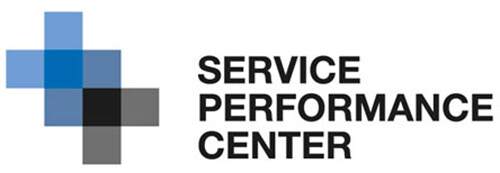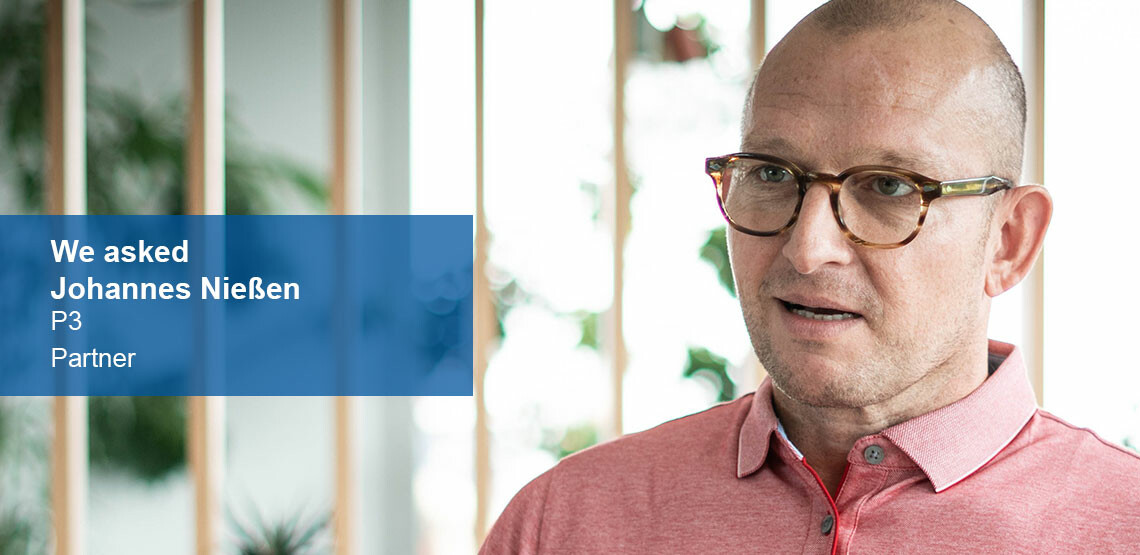7. September 2020
Since 2019, P3 is a member of the Center Smart Services on the RWTH Aachen Campus. Johannes Nießen, partner at P3, gives an interview about his decision to join the center and the resulting advantages for P3.
What is the general idea behind your membership on the RWTH Aachen campus?
In our projects, we develop creative and innovative approaches, methods and procedures to solve the challenges of our customers. In this respect, we act very much like the Center Smart Services team. Our orientation is always very customer- and practice-oriented. However, we also need the scientific component in order to validate our solution approaches. The Center Smart Services offers us this, among other things, through close cooperation with the FIR at RWTH Aachen University. Through our enrollment we can now verify the benefits of the strategies and solution approaches we have developed through case studies, consortium projects or benchmarks.
What motivated you to enroll in the Center Smart Services?
As a former FIR employee, I went to a FIR event in 2018 for the first time in almost 20 years: the CDO 2018 – Convention on Digital Opportunities. I was thrilled to experience what opportunities are available to companies today in the Smart Logistics Cluster. Take, for instance, the Demofabrik Aachen, an Industry 4.0 reference factory, or the theme park where you can install your prototypes and use them for acquisition purposes for your own customer events.
At the time, we were looking for a partner who, like us, did not just talk about problems, but knew them from practice and generated individual solutions based on this knowledge. Like us, the Center Smart Services not only takes a theoretical perspective, but also develops solutions closely oriented to the customer, and then validates them very quickly with the help of prototypes. This commonality with regard to the approach has convinced us and brings us many advantages in cooperation with the Center Smart Services and its community.
What does your cooperation with the Center Smart Services look like?
Within the last year, we have been active together in many different ways. For example, through the center community, we have found partners who complement our expertise in the area of mobility. By pooling our competencies and those of our complementary partners, we are now in a position to develop holistic mobility concepts for the future of cities and municipalities.
In close cooperation with the Center Smart Services and the FIR, we have also launched the RWTH certificate course “Digital Business Developer”. It starts on September 15, 2020, and only a few places are still available. Our IoT Bootcamp shows how well we complement each other with the Center Smart Services in the area of training and further education. We have developed this format together in recent months and presented it for the first time at the Service Forum 2020 with an excellent response.
The basis of the bootcamp is the IoT platform “P3 Nexonic” for digital shopfloor management. Independent of the manufacturer and easy to use, it allows data to be extracted from non-connected production plants in order to monitor the performance of the plant, the quality of the produced parts or the efficiency of the plant. Together with the center, which contributed its expertise in business model development, we tailored the IoT Bootcamp precisely to the situation of small and medium-sized companies. The concept enables them to take their first steps towards Industry 4.0 without having to make major investments.
What medium and long-term advantages do you see in the cooperation with the Center Smart Services and what are your objectives?
I am absolutely convinced that we are much stronger together than we could be alone. The IoT bootcamp, which was conceived in cooperation with the center, is a good example. Industry 4.0 has been on everyone’s lips for many years, but there are very few for medium-sized companies in Germany. IoT investments of several 100,000 euro are usually not enough for medium-sized companies or the IoT solutions are simply too powerful for them. The combination of Nexonic, strategic product and business model development now offers our SME customers a perfect combination for a sustainable entry into Industry 4.0.
What is your advice to companies that are still hesitant about enrolling?
Just visit one of the great events of the Center Smart Services on the RWTH Aachen Campus, talk to the participants about their experiences and discover the impressive infrastructure of the Smart Logistics Cluster first-hand. Interested parties are welcome to contact me directly and ask questions.


